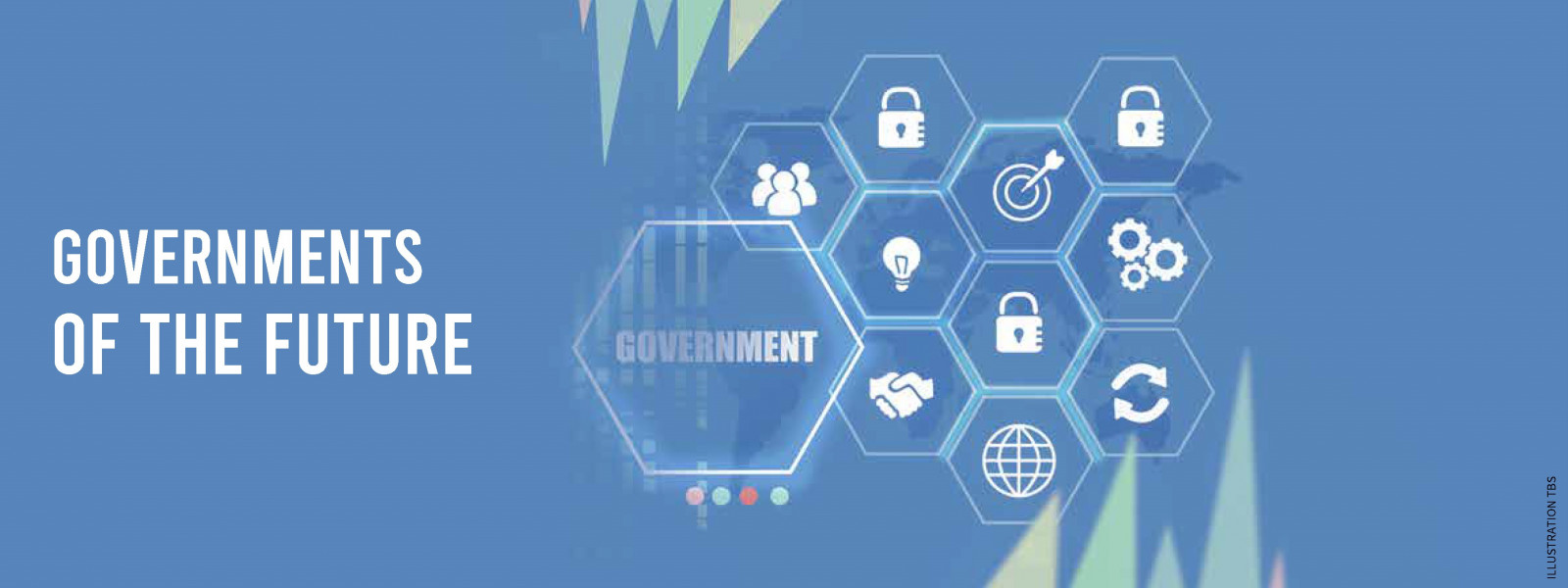Governments of the future
Governments worldwide must think beyond the immediate challenges and start working on providing their citizens with more equitable, greener and sustainable solutions

The existence of governments dates back to ancient times. Ample evidence of the formation of small city-state governments in ancient civilisations dating back to nearly 5,000 years have been found. The existence of businesses dates back to even further, from the time when humans started living in large groups.
Governments and businesses are two very powerful and influential institutions in any society and state. While governments prepare and implement policies for the benefit of citizens, businesses work towards providing economic growth and sustainability to those policies. The interrelated and interdependent relationships between governments and businesses have evolved over time.
The Covid-19 pandemic has been the most significant global crisis in recent times. It is important to reflect upon the role that governments and businesses would play in the post-pandemic world, and how their roles are required to evolve in the future.
The relationships between governments and businesses must undergo radical transformations to make governments of the future relevant and effective for their citizens.
The pandemic's onset in early 2020 was perceived as a leveller between people across social and economic segments, primarily due to the homogeneous risks of getting infected. A virus does not distinguish between rich and poor, or races and colours. People had to refrain from leading their regular lives as the pandemic intensified.
However, with the passage of time, it became quite evident that the pandemic has accelerated the widening of economic and social divide worldwide. Rich individuals started becoming richer due to their ownership of modern and digital businesses as more individuals and organisations moved towards digital activities.
Knowledge workers of the digital economy continued to earn as they worked from home. At the same time, people belonging to lower-income groups are struggling with unemployment due to lockdowns in many countries, unaffordable costs of medical treatment and inaccessible healthcare facilities.
The inadequacy of available healthcare services in developing countries, with respect to their larger population, made it more difficult for the poor to access them.
The pandemic has been a crucial driver of social and economic division, and governments worldwide must think beyond the immediate challenges and start working on providing their citizens with more equitable, greener and sustainable solutions.
The key questions should focus on how governments and businesses can work together to address inequality across urban and rural areas, generations, and genders. How should they work towards economic recovery that is both fast and equitable? What should be the transformation agenda of governments to design and deliver services to their citizens in future?
To understand the needs and subsequently design government programmes better, a deeper analysis of each of the above-mentioned questions will be required. For example, the inequality between urban and rural areas must be analysed to understand what kind of investments will be required.
The urban areas in and around large cities like Dhaka and Chattogram will require investments towards smart-city development. At the same time, rural Bangladesh will require more sustainable options for improved farming and access to modern technology.

The challenges around social mobility should also be thoroughly addressed. In a country like Bangladesh, where a majority of the population is young, social mobility could mean the improvement of many social and economic parameters such as better standards of living, higher-income jobs and ownership of homes.
For a relatively older population of Bangladesh, it may also mean their children getting access to quality education. The ability to access affordable healthcare services is a universal need across all the population groups in the country.
At the same time, businesses face the challenges of both hiring people due to the lack of skills and upskilling their existing workforce.
Bangladesh is an emerging economy and has witnessed a high GDP growth rate in the past couple of years. According to the national budget speech by Bangladesh's finance minister, the country's GDP growth rate stood at 5.2% in FY19–20, despite the severe impact of the pandemic.
The GDP is expected to grow at a rate of 6.1% for FY20–21 and the goal for the growth rate in FY21–22 has been set at 7.2%. Clearly, Bangladesh has been successfully sustaining its growth journey that started several years ago and is expected to maintain this high growth rate throughout the decade.
However, such a high GDP growth rate can only be sustained if the government addresses key questions around faster and equitable recovery of the economy, as well as the need to accelerate social mobility.
Transformation of citizen services, particularly technology-led digital transformation will play an important role. The government should also develop new ways of working together with businesses.
Both government and private workforces need to develop new skills of working together, collaborating with common goals, and more importantly, upskilling themselves to use digitalisation as a tool for delivering services to the citizens.
While designing and executing the transformation programmes, the government must focus on maintaining gender equality. Bangladesh progressed remarkably well in employing women in its flagship industry of apparel manufacturing.
The presence of women in delivering healthcare services is also significant. While implementing the new transformation programmes, the government should focus on improving the working conditions of women at workplaces and bringing in income- and growth-related parity.
Modern technologies are excellent enablers of women empowerment and there should be adequate focus on digitally upskilling women in the workforce.
The governments of the future will act quite differently compared to the present ones. Significant changes will be achieved through technology-led transformation of citizen services. The work towards achieving that vision should start now.
The writer is a Partner with PwC. The views expressed here are personal.



 Keep updated, follow The Business Standard's Google news channel
Keep updated, follow The Business Standard's Google news channel
















